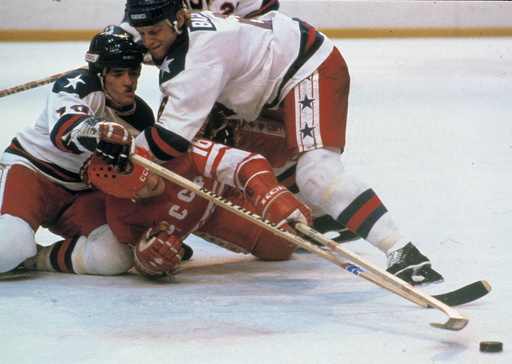
BOSTON — The anticipation is high as the U.S. and Canadian hockey teams prepare for their championship showdown on Thursday night, a match that has evolved into one of the most exciting international hockey tournaments in recent memory. With geopolitical tensions looming in the background, the teams are determined to focus solely on the competition, hoping to create a memorable experience for fans reminiscent of legendary sports moments, like the U.S. “Miracle on Ice” against the Soviet Union during the 1980 Winter Olympics.
U.S. coach Mike Sullivan reflected on the influence of that unforgettable event, stating it inspired a generation of players, including himself. He expressed hope that the current crop of talent could ignite a similar passion for the sport, drawing from the legacy of the 1980 team. Sullivan’s illustrious career has spanned from an 11-year NHL playing tenure to over two decades as a coach, underscoring the weight of such impactful history on American hockey.
This month marked the return of the NHL’s elite to international play, filling the void left by the NHL All-Star Game—a midseason exhibition often regarded as insignificant. The top players from the United States, Canada, Finland, and Sweden gathered for this tournament, and the quality of play has exceeded expectations. A particularly intense matchup between the North American rivals drew significant viewership, ranking as the most-watched non-Stanley Cup Final game in a decade.
Coach Jon Cooper of Canada noted the dramatic shift away from typical All-Star displays, underscoring that the intensity and seriousness of the games have not been lost on anyone involved. The atmosphere has been charged, heightened in part by recent political tensions such as tariff disputes and controversial remarks regarding Canada. Such feelings were palpable during the national anthems, with Canadian fans booing the U.S. anthem at a recent game, and American fans responding robustly during theirs.
U.S. forward Matthew Tkachuk emphasized the need to transcend these political discussions, focusing instead on the game and its potential to inspire future generations of players. He believes that a victory could foster a new wave of interest and participation in hockey across the nation. Meanwhile, Canadian forward Brad Marchand voiced his perspective that the quality of the hockey itself is enough to win over fans, recalling his own childhood memories of significant matchups.
The earlier round-robin face-off ended with the U.S. claiming a 3-1 victory, marked by a frenzied start that included multiple fights and ultimately settled into a fast-paced, skillful display of hockey. Tkachuk characterized the upcoming rematch as feeling even more significant, indicating that the environment at the game will be electric and a point of pride.
The desire to witness this historic event is evident, as local fans like Ted Sells traveled far distances to watch. He expressed hope that the intensity of the moment would overshadow any underlying political issues. Meanwhile, James Kopacki, who flew in from Texas to catch the game, noted that the excitement of the round-robin contest was why he made the trip, drawing him to the edges of hockey rivalry.
Consumer enthusiasm is also reflected in the ticket market, with prices soaring due to the increased interest. Kopacki shared his experience of monitoring the price of tickets and humorously suggested that if prices reached $5,000, he might instead watch from a bar in Boston. The commitment and passion surrounding this event highlight not just the competitive spirit between the U.S. and Canadian teams but the way hockey can unite—or divide—fans across borders.

